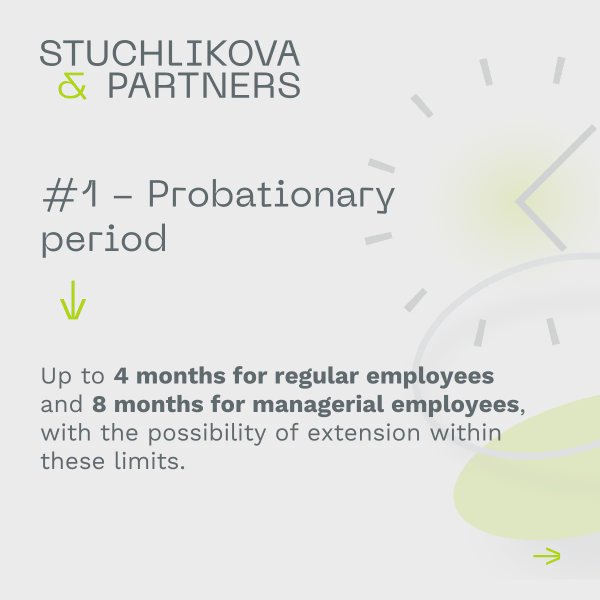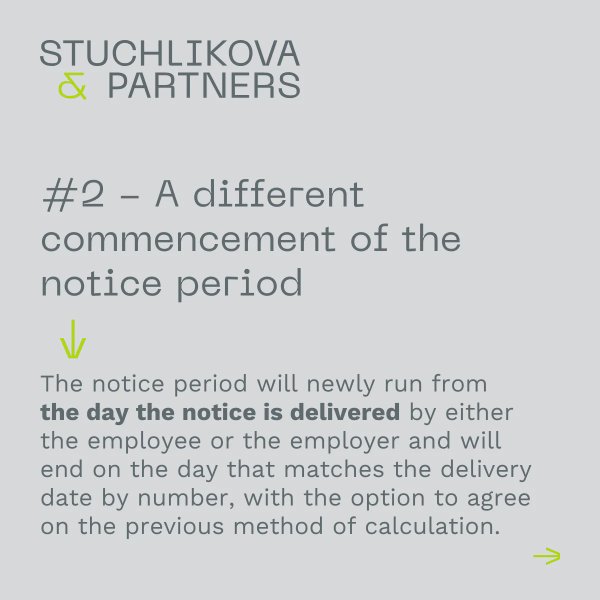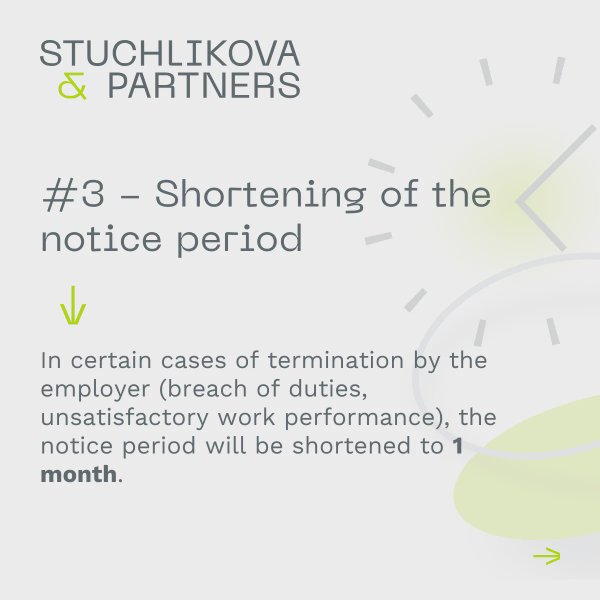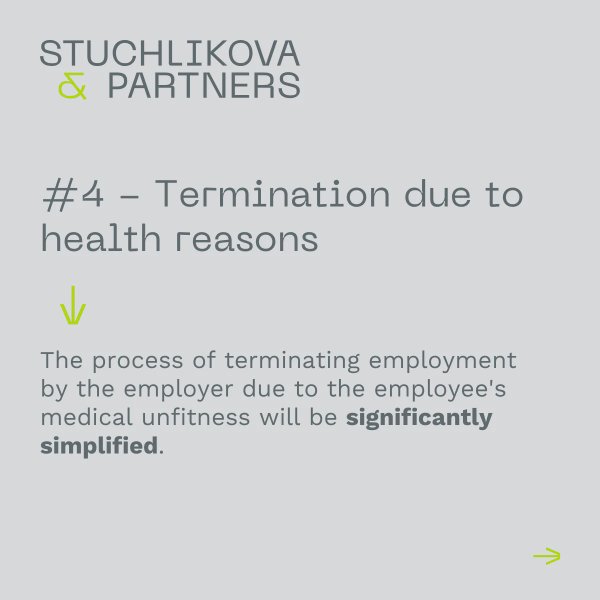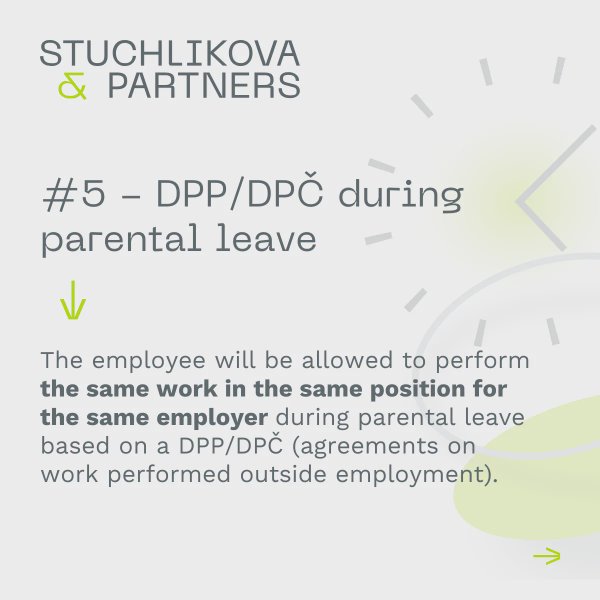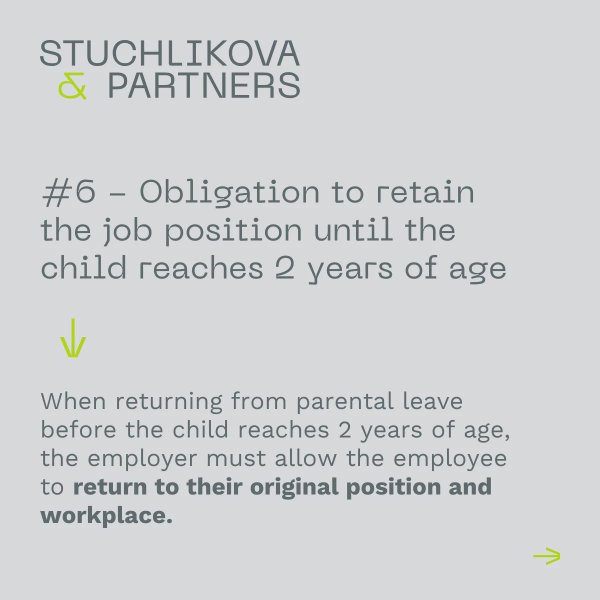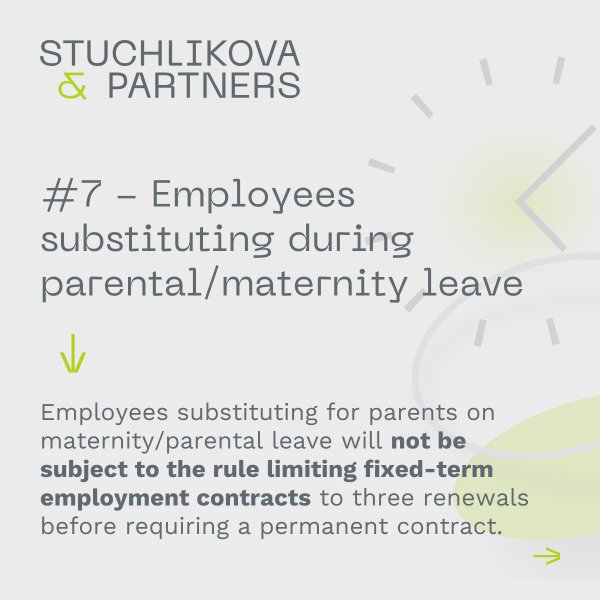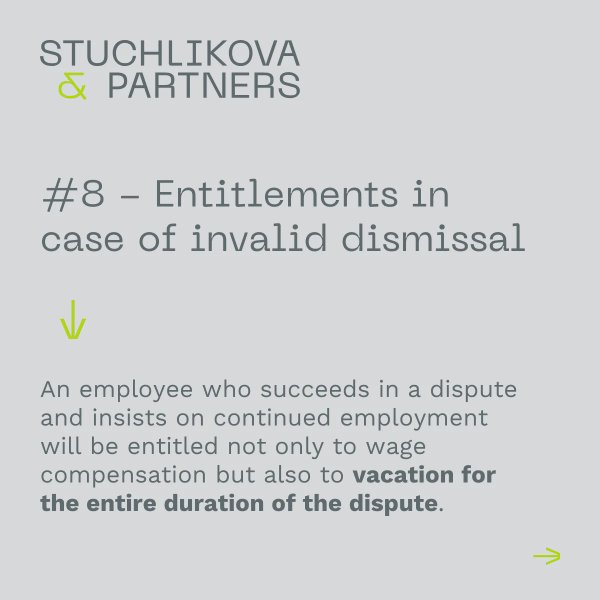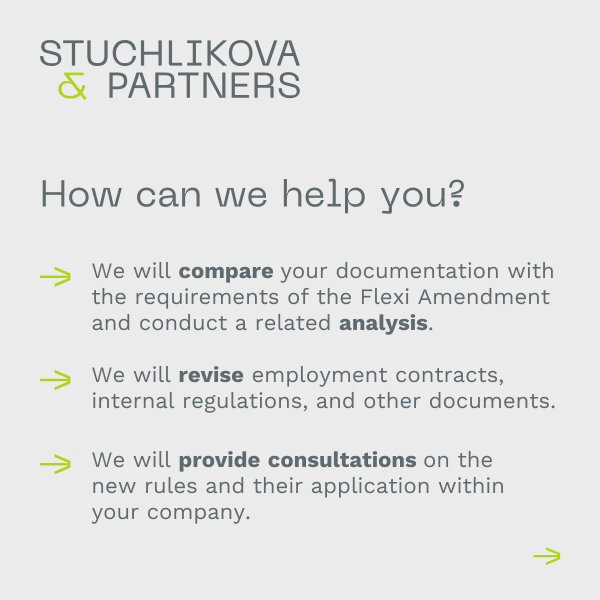Flexi-Amendment to the Labour Code - What Will the Upcoming 2025 Amendment Bring?
As of 1 June 2025, a major amendment to the Labour Code, referred to as the “flexi-amendment” (flexinovela), is expected to come into effect. Although the draft is still undergoing the legislative process, it is already clear that significant changes in the field of labour law are being prepared — for both employers and employees. Below is an overview of the most important changes the flexi-amendment is set to introduce, including practical implications worth preparing for.
Longer probationary period
One of the key changes is the extension of the probationary period — up to 4 months for regular employees and up to 8 months for managerial staff. Newly, it will also be possible to extend the probationary period within these limits, providing employers with greater flexibility when integrating new employees.
Change to the commencement of the notice period
The flexi-amendment alters how the notice period is calculated. Newly, it will begin on the day the notice is delivered by either the employer or the employee and will end on the day of the following month that numerically corresponds to the date of delivery. However, it will still be possible to contractually agree on the original method of calculation.
Shortening of the notice period
At the same time, the notice period will be shortened in cases where the employer terminates the employment relationship due to a breach of duties or unsatisfactory work performance. In such situations, the notice period will newly be limited to just 1 month.
Simplification of termination on health grounds
The amendment will significantly simplify the process of termination due to health reasons. Employers will face fewer administrative hurdles when terminating employment with employees who are long-term medically unfit to perform their work.
New rules during parental leave
Important changes are also coming to parental leave. Employees will newly be allowed to perform the same work in the same position for the same employer during their parental leave, via an agreement on work performed outside employment (DPP or DPČ). Until now, it was not permitted to have multiple employment arrangements of the same type of work with the same employer.
At the same time, employers will be obliged to reserve the job position for an employee returning from parental leave before the child reaches the age of 2. These employees will have a guaranteed right to return to their original position and workplace.
Exception from the limit on repeated fixed-term employment contracts
The flexi-amendment introduces an exception to the rule limiting fixed-term employment to a maximum of three consecutive contracts. This exception will apply to employees who are covering for colleagues on maternity or parental leave. For employers, this means greater flexibility in filling positions during the absence of core staff.
Wages in foreign currency
The amendment allows for an agreement to pay wages in a foreign currency. However, due to the need for currency conversion, wages may only be paid in a currency for which the Czech National Bank publishes an exchange rate valid for the next working day.
Strengthening employee rights in case of invalid dismissal
Another new development is the expansion of entitlements for employees who succeed in a dispute over the invalidity of a dismissal and insist on continuing the employment relationship. In addition to wage compensation, they will now also be entitled to paid leave for the entire duration of the dispute.
How to prepare and how can we assist you?
The flexi-amendment brings changes that will impact employment contracts, internal regulations, process settings, and the daily operations of employers. Timely preparation can significantly reduce the risk of errors in implementing the new rules.
We are ready to assist you with:
- comparing your documentation with the requirements of the flexi-amendment, including related analysis,
- adjusting employment contracts, internal regulations, and other documents,
- consultations on interpreting the new rules and applying them in your organisation.
If you have any questions or are interested in a personalised consultation, do not hesitate to contact us at info@stuchlikova.com or call +420 222 767 393. We’ll be happy to help you find the most suitable solution.


